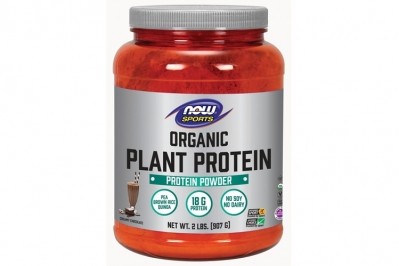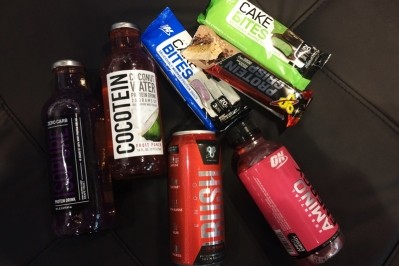special edition: sports nutrition
Sports leagues turn to testing regimes to lessen supplement risk

Brian Jordan, a former strength and conditioning coach with the Colorado Rockies, spoke with NutraIngredients-USA about how the field has changed during his career. Jordan is currently a technical manager for the NSF Certified for Sport program. NSF will be presenting sessions on various aspects of the organization’s services at the Vitafoods trade show this week in Geneva, Switzerland.
Jordan said in his role within the sport of baseball, he interacted with athletes on their nutrition and how that related to their performance. In his 16-year MLB career he said the use of supplements has risen steadily.
“I would say now the large majority of athletes use supplements,” he said. “There is a very high percentage that use at least one dietary supplement and there are a lot who use multiple supplements.”
Quality image damaged
Jordan said the quality issues that have plagued the dietary supplement sphere and in particular the category of sports nutrition has damaged the industry’s image. It has become all too easy for athletes to blame supplements that contained banned substances for their having failed drug tests. A recent case in the NFL involved Bears receiver Alshon Jeffrey, who was banned for four games for failing a test, a failure he blamed on a supplement he took to quell inflammation that contained a banned ingredient.
“It is well documented that some supplements have been found to be contaminated,”Jordan said.
“In that population there is a very high awareness that a dietary supplement can cause a drug test failure,” he said. “It’s a strict liability situation; they are responsible for what they put in their bodies.”
“I would always recommend food first, but when people come off the field after a workout, they don’t necessarily want to chew on a steak,” Jordan said. Some athletes, especially those that need to maintain large amounts of muscle mass like NFL linemen, might turn to protein supplements simply to maintain body mass during the season. A 300-lb NFL player could easily need to consume 4,000 calories a day just to maintain weight, even without figuring the training into the equation.
Jordan said over the years he has seen the knowledge about dietary supplements increase, as well as the quality of the products themselves.
“The education has gotten much better about how to use them,”Jordan said. “Now I see all kinds of products in locker rooms. It is everything from proteins, to amino acids, creatine, joint formulas, sleep products. You see a lot of recovery products, and you see multivitamins and even single mineral formulas to deal with specific deficiencies.”
Testing for 270 substances
The sports leagues have decided to respond to the situation by teaming with organizations like NSF, Informed Choice or the Banned Substances Control Group to provide a guide to supplements that will help an athlete steer clear of trouble. In the case of NSF Certified for Sport, the testing regime looks for more than 270 banned substances, Jordan said.
“They do understand the comprehensive nature of our program and they do know it reduces risk. I think the sports leagues know the athletes will continue to use supplements and they are looking at how to best manage that,”Jordan said.
Jordan said a big selling point for the NSF Certified for Sport program is that is builds upon the organization’s GMP certification activities. It makes for a stronger overall quality message, he said.
“Our program does have a GMP registration requirement before entering into the program. We conduct a physical audit on site twice a year. They have to pass that, and then the last step is the testing for banned substances. There are a lot of sporting bodies that prefer that because they know we go to great length to verify not just the finished product but the process of getting to that product,” Jordan said.
















